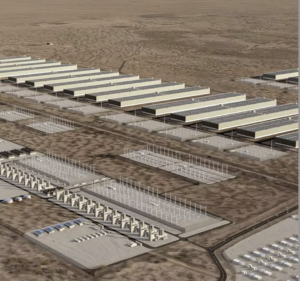
In today’s business climate, where uncertainty is the only constant, all energy companies and utilities are looking for opportunities to preserve profit and enhance efficiency. For organizations managing critical infrastructure and large-scale physical assets, one often-overlooked area with significant potential for improvement lies in the seemingly mundane, yet incredibly complex, world of business property taxes.
While the mortgage industry has long embraced sophisticated escrow and large-scale payment systems, many utilities and energy companies are still dealing with the frustrations and challenges of accurately paying property taxes, often leading to wasted time, unnecessary costs, and missed opportunities.
COMMENTARY
The core of this challenge for utility and energy entities stems from a critical need for accurate and accessible data related to property taxes and managing liabilities. Unlike individual homeowners, these organizations frequently manage diverse property portfolios—ranging from substations and transmission lines to administrative offices and leased operations centers—across various jurisdictions.
This inherently increases the complexity of tax payments. Imagine an energy provider operating across multiple counties or states—each property has its own unique tax assessment, due dates, and regulations that can vary wildly from one municipality to the next. Keeping track of this intricate web of information manually is a monumental task, prone to human error and oversight.
It should be noted that some utility companies do not directly own all of their facilities. In leased situations, especially under “triple net” (known as NNN) structures, taxes are often passed through to the tenant, making property tax accuracy a direct cost concern.
Given all this, the need for data extends beyond mere payment. Utilities are keenly interested in knowing if they are paying the right amount of tax. This is not just a bookkeeping concern—it’s a liability management issue. To effectively manage this, accessible and accurate data is necessary when considering a property tax appeal, especially in cases where assessed values appear inflated or out of sync with actual infrastructure valuation.
If a property’s assessed value is incorrect, it can lead to inflated tax bills that directly impact rate structures and operational costs. The process of challenging these assessments, however, demands precise data and a clear understanding of the tax laws, which can be an overwhelming burden for teams focused on grid reliability, compliance, and capital planning.
One of the main reasons this remains such a significant challenge for utilities is the inherent lack of specialized expertise within many organizations when it comes to property tax management. While large, regulated utilities might have dedicated tax teams, many co-ops, municipal providers, and renewable-focused companies often assign these responsibilities to general accounting or facilities staff that may not be experts in multi-jurisdictional tax management. This leads to a reactive approach, where they are merely “getting it done” rather than strategically optimizing their tax processes. The perception can be that property tax payment is simply a necessary chore, rather than an area ripe for cost savings and efficiency gains.
The solution to these pervasive frustrations lies in embracing better automation and payment processing systems. Think of it as moving from a 100-level understanding of tax payments—simply getting them paid—to a more sophisticated, strategic approach that reduces time and costs. Automation can streamline the collection and organization of property tax data from various sources, eliminating the need for manual data entry and reducing the risk of errors. This means a system that can accurately track due dates, automatically flag discrepancies, and even integrate with existing enterprise resource planning (ERP) or financial systems.
Moreover, advanced systems can provide the accurate and accessible data that utilities desperately need for liability management and potential appeals. By consolidating property information, assessment values, and payment histories in one centralized platform, companies gain a comprehensive overview of their tax obligations. This empowers them to proactively identify opportunities for appeals, leveraging precise data to make a compelling case. The ability to readily access this information transforms the reactive burden of tax payment into a proactive strategy for cost preservation.
The shift toward automation in property tax management is also consistent with the broader energy industry trend of prioritizing “technology stacks.” In an increasingly complicated and regulated environment, utilities and energy companies are constantly seeking ways to be more efficient, and robust technology solutions are at the forefront of this movement. Just as the industry embraced automation in smart metering, supervisory control and data acquisition (SCADA) systems, and outage management platforms, it can also streamline an essential, yet overlooked, financial process.
Property tax management has long been overlooked as a source of operational improvement, but it doesn’t have to be. In essence, by revisiting an area that may never have been considered for optimization, utilities and energy companies can uncover significant benefits. While paying hundreds or thousands of property bills can be a challenge, the right technology can provide an in-house expert that reduces both time and costs. This allows these organizations to take a task off their plate, knowing that their property tax payments are being handled accurately, efficiently, and with an eye toward long-term financial performance. Embracing these solutions isn’t just about paying taxes; it’s about smart resource management and ensuring the continued success of critical infrastructure.
—Steven Pals is director of Business Development at Autoagent, an escrow tax processor.

